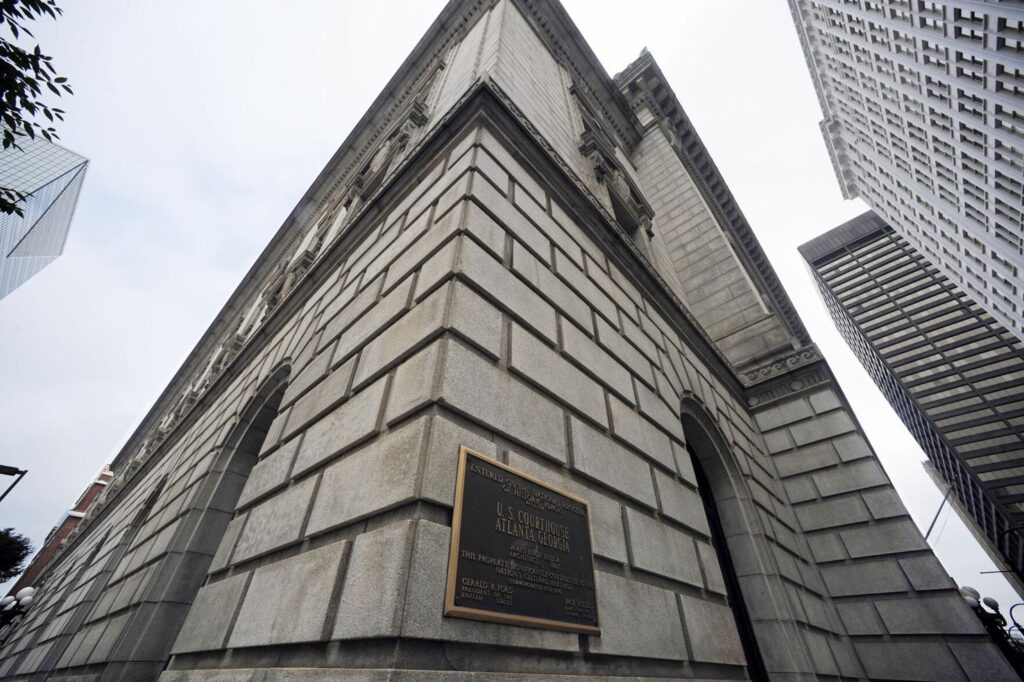The Center Square
By John Haughey
July 24, 2021
It’s a narrow case, but the eventual ruling in the 19th Amendment challenge to Florida’s 2019 felon voting law will be based on how “discriminatory intent” is applied.

Southern Poverty Law Center (SPLC) attorney Nancy Abudu and state attorney Mohammad Jazil squared off Thursday during a 32-minute oral argument hearing before the 11th U.S. Circuit Court of Appeals in Atlanta, which heard its second challenge to Florida’s law barring ex-felons from voting if they owe restitution, court fines and fees.
Last September, in a landmark victory for Gov. Ron DeSantis and the Republican-dominated Legislature, the 11th Circuit upheld Senate Bill 7066 in a 6-4 decision that ensured the vast majority of 85,000 ex-felons registered to vote could not cast ballots in November.
While the appellate court dismissed ACLU’s 14th and 24 amendment arguments after a 16-month battle, the SPLC is arguing on behalf of two Black women with felony records, asserting the law violates the equal protection clause under the 14th Amendment – as the ACLU did – but also under the 19th Amendment, which extended women the right to vote.
Plaintiffs Rosemary McCoy and Sheila Singleton filed 28-page McCoy v DeSantis lawsuit in July 2019 contending they were denied their right to vote under SB 7066 because their criminal records prevent them from getting jobs that pay enough to retire court-ordered restitution.
Abudu said McCoy and Singleton satisfied sentencing and probation requirements and voted in May 2019 local elections “without any obstacles to the ballot box and without any detriment to the state.”
But when SB 7066 went into effect on July 1, 2019, both could no longer vote unless they satisfied $24,000 in combined restitution, fees and court costs.
“This is not a temporary barrier to accessing the ballot box because of the significant amount of money they owe. This results in them never, ever being able to vote again,” Abudu said, noting while the suit is specific to the two women, the law is “a categorial denial” because of who they are.
One-quarter of Black women in Florida live below the poverty line and Florida Black women with felony records have a 43% unemployment rate, she said.
Therefore, “it’s an intersectionality argument,” Abudu said. “Our clients, because of their race, because of their gender, because of their felon status,” are entitled to equal protection under the 19th amendment.
“We brought additional claims that go beyond just their wealth. It’s unrealistic in our clients’ situation,” she said, arguing there is no requirement to apply a “discriminatory intent” standard. “It is well within the court’s authority to impose a more strict or heightened level of scrutiny.”
Jazil said “the overarching point” of Abudu’s argument is “turning equal protection on its head” by seeking to represent a “class of felons” with a lawsuit that does “just the opposite” in making arguments specific to two plaintiffs.
SB 7066 is not an “absolute bar” to voting, Jazil said, noting a federal court has already denied the SPLC’s argument because “Black women were not suffering the brunt of the implementing legislation. Everything was disproportionally affecting men – Black men.”
The state has the “better of the argument by precedent,” Judge Adalberto Jordan said, before adding, “But we have voting cases where we do not apply a discriminatory intent standard.”
The SPLC is appealing a ruling by U.S. District Judge Robert Hinkle, who dismissed their 19th amendment argument earlier this year.
Hinkle is the same judge who upheld the ACLU’s lawsuit against SB 7066 last May after a 16-month legal battle that culminated with the 11th Circuit overturning his decision in September.

